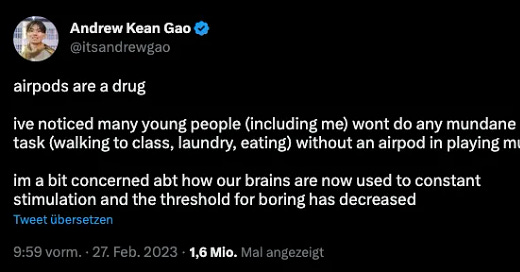Rabbit Holes 🕳 #32
From being dignified as a rule to what's enough, time billionaires, reclaiming life from work, and the achievement society
Before we get started, a few small general updates:
📟 New Domain:
Yep, I’m going a bit more pro, and I bought a custom domain for the newsletter 🥳. The substack can now be found here: www.creativedestruction.club!
☕ Buy Me A Coffee:
You can now support my work by buying me a coffee. I know this isn’t for everyone, but if you have the means and get a lot …




